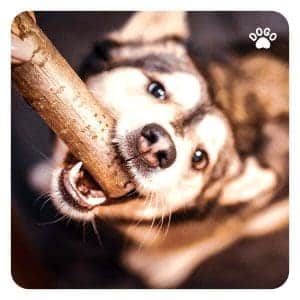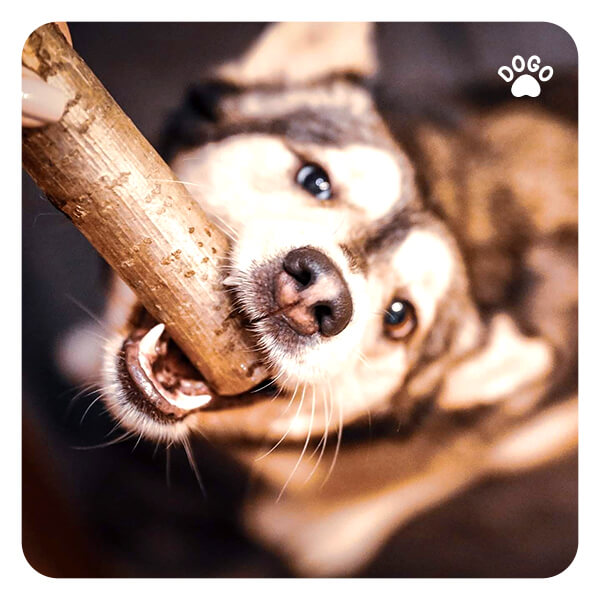 Having a new puppy is an exciting time, but dealing with their biting behaviors can be challenging. Puppies naturally explore the world with their mouths, but it’s crucial to teach them how to interact with humans and other pets without nipping or biting. If you’re struggling with your puppy’s biting habits, you’re not alone. In this blog post, we’ll explore why puppies bite, the importance of addressing this behavior early on, and effective methods to help your puppy learn bite inhibition.
Having a new puppy is an exciting time, but dealing with their biting behaviors can be challenging. Puppies naturally explore the world with their mouths, but it’s crucial to teach them how to interact with humans and other pets without nipping or biting. If you’re struggling with your puppy’s biting habits, you’re not alone. In this blog post, we’ll explore why puppies bite, the importance of addressing this behavior early on, and effective methods to help your puppy learn bite inhibition.
Understanding why puppies bite is the first step in addressing this behavior. Puppies, much like human babies, use their mouths to explore and learn about their environment. When they play with their littermates, they use their teeth to interact and communicate. However, when puppies transition to their new homes, they need to learn that human skin is much more delicate than their littermates’ fur. It’s essential to recognize that biting is a natural part of a puppy’s development, but it’s equally important to teach them how to control their bite pressure.
Addressing your puppy’s biting behavior early on is crucial for preventing future issues. As your puppy grows, their bite strength will increase, and if the behavior isn’t corrected, it can lead to more serious problems. Teaching bite inhibition, or the ability to control the force of their bite, is an important lesson that will benefit your puppy throughout their life. By addressing this behavior in their early months, you’re setting the foundation for a well-behaved and well-adjusted adult dog.
One effective method to make a puppy stop biting is to mimic how their littermates would respond during play. When puppies play together, they yelp if a sibling bites too hard. You can use a similar approach by letting out a high-pitched “ouch” or “yelp” when your puppy bites you. This vocal response mimics the way their littermates would communicate, signaling that the bite was too rough. By doing so, you’re teaching your puppy that their bite was excessive and uncomfortable.
Another useful technique is redirecting your puppy’s biting onto appropriate toys. Puppies need to chew and gnaw as their teeth come in, so providing them with suitable chew toys can help alleviate their need to bite. When your puppy starts to nip at your hands or clothing, redirect their attention to a chew toy, such as a rubber bone or a rope toy. This not only helps save your hands and clothes but also teaches your puppy what items are acceptable for biting and chewing.
Consistency is key when addressing your puppy’s biting behavior. It’s essential to communicate with everyone in your household about the training methods being used so everyone responds to the puppy’s biting in the same way. Additionally, providing your puppy with regular playtime and exercise can help reduce their urge to bite out of boredom or excess energy.
Incorporating positive reinforcement into your training approach can also yield positive results. When your puppy refrains from biting and interacts gently, offer praise and rewards. This can be in the form of verbal praise, treats, or extra playtime. By reinforcing gentle behavior, you’re encouraging your puppy to engage in positive interactions.
It’s important to remember that addressing your puppy’s biting behavior takes time and patience. Each puppy is unique, and some may catch on quickly, while others may need more time to learn. Consistent training, positive reinforcement, and redirection are essential components in helping your puppy develop bite inhibition and grow into a well-mannered adult dog.
In conclusion, understanding why puppies bite, addressing this behavior early on, and using effective training methods are crucial for making a puppy stop biting. By teaching bite inhibition, redirecting their biting onto appropriate toys, maintaining consistency, and incorporating positive reinforcement, you can help your puppy learn appropriate ways to interact with people and other pets. With patience and dedication, you can guide your puppy toward developing good manners and a gentle mouth.[/fusion_text]

